
When my Mom picked up M. Scott Peck's The Road Less Travelled and read the first sentence, "Life is difficult," she closed the book. She figured that anything that starts with that premise isn't going anywhere that she wanted to.
As a part of my Nia training, I recently took on the practice of limiting my use of the word "hard" to describe something that is "solid and firm to the touch," avoiding saying things like "That was hard," or "I find it hard when..." The idea, as I understand it, was not to be in denial or avoidance about things that are challenging but rather to bring empowerment. I'm still exploring this but wanted to share what I'd learned so far.
When I say, "That's hard," I notice that I often say it as though I am defeated, like that statement is an explanation of why I am not moving forward and don't really think I ever will move forward with anything but the smallest of steps. And it's such a general statement that how can anyone really know what I mean? If I say, "That test was hard," do I mean that the questions were obscure? That there wasn't enough time? That I wasn't properly prepared? And in being so vague, it does nothing to help me figure out a next step.
Making the effort to find other words to describe my experience invited me to express myself with far more clarity and that was empowering in itself. And I found that the increased specificity often pointed me in a direction for positive change. For example, dripping in sweat, having struggled with the physical demands of the class, instead of saying "Man, that class was hard," I might say, "Man, my lungs really had to work!" Instead of "Making a living as an actor is hard," I might say, "As an actor, I'm going to face a lot of competition and often the pay is not going to be that good."
Writing the examples I see how it also removes the judgment that's inherent in the word hard. I'm still learning what this practice might open up. But so far I see some really interesting shifts. And at minimum, I like the way it pushes me to use language with more attention and with more clarity.
How would you rephrase and reframe the things in your life that are hard?

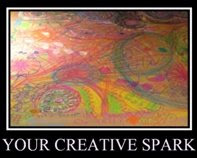
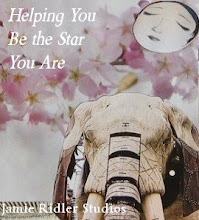




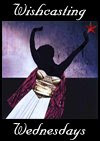
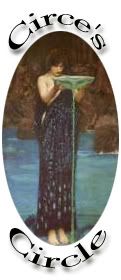

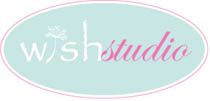




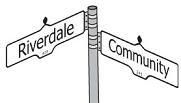
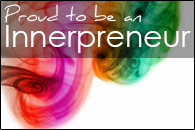






10 comments:
Hey girl. I love this post. The language we use to describe ourselves and our lives seeps into what is possible in life and in ourselves.
I began to change my language about 10 years ago, when I noticed my inner self-talk. I had just read "You Can Heal Your Life" by Louise Hay. I noticed that it was mostly negative. So I began to take small steps to move from negative to neutral. Then I felt SO much better. Now I use positive language as much as possible. I can't even describe the changes that have rocked my world since!
In my work, I'm always working on this with clients. They think I'm crazy at first, but then slowly but surely it begins to sink in.
Thanks for sharing this.
Inner language is one of the hardest things for me... Wait, let me rephrase. :) I need to work on changing my inner language!
This post hit a spot for me - something I do need to work on. It can really, truly change how things go for me if I could change how I say things to myself. I know this... Now just to put it into practice! Thanks for the reminder!
I can totally see Mom doing that Jamie! I closed that book because of all the Christian references, LOL. I guess we all have our boundaries.
I'm struggling with this particular issue very much. I love how you reframed it. I do think the word hard comes down to, "Do I really want this?" Sometimes it's worth all the struggle and sometimes it isn't. At least this way you feel you have some control.
I remember you having this wisdom regarding the word 'just' ages ago!
I love how the rephrasing takes the judgement out of it, I'm going to have to try that.
I always like to be really specific with stuff, but that often means I ramble on...
yay for clarity
What a wonderful post! I think that first line of Peck's book jolted me too when I first read it, though I was relieved to have someone state it without denial or making it all rosy because it is oh so true. But I also really love the spin you have put on it because is opens up possibilities and options and feels so much less defeating. I think being on my own again at the moment feels very hard. It is very hard emotionally/mentally sometimes but there is a lot to enjoy about it too and be gratefeul for and I think I am going to take your post as a launching post to write in my journal about this afternoon. And Happy Thanksgiving to you!!!!
I struggle with this concept too. I tend to use the word "intense." I don't necessarily think that "intense" is bad or hard. It means whatever the person listening thinks it means- overwhelming, it had an impression on me, I was filled with awe, it was painful, etc... There is room for interpretation and imagination.
Very thought provoking.
Thank you for your kind words on my blog. I can't tell you how much they meant.
Good post, Jamie. You always make me consider things more deeply. My recent change in language is this: I've stopped saying "but." Instead I say "and."
Example, "I'm overweight BUT I like to go to the gym."
Improved: "I'm overweight AND I like to go to the gym."
That´s really interesting, I often don´t realise the power of words, whether thought or spoken but I´m sure a shift occurs when we take notice to change what we´re putting an emphasis on. In German you say "das war schwer" that was heavy(instead of hard) which allows it to drag down even more. I´ll try to think "das war eine herausforderung" in future (that was challenging).
How about: difficult, challenging.
There are things we must meet and do, to the very best we can manage.
One must decide, ok. just what is it, that I want to accomplish.
Instead of calling myself "mentally ill" or "bipolar" I consider myself someone who has dangerous gifts, and someone whom must carefully attend to my own wellness. I consider myself someone whom is vibrant, sensitive, glowing, vibrating, in motion, and growing.
I consider myself a survivor.
Post a Comment